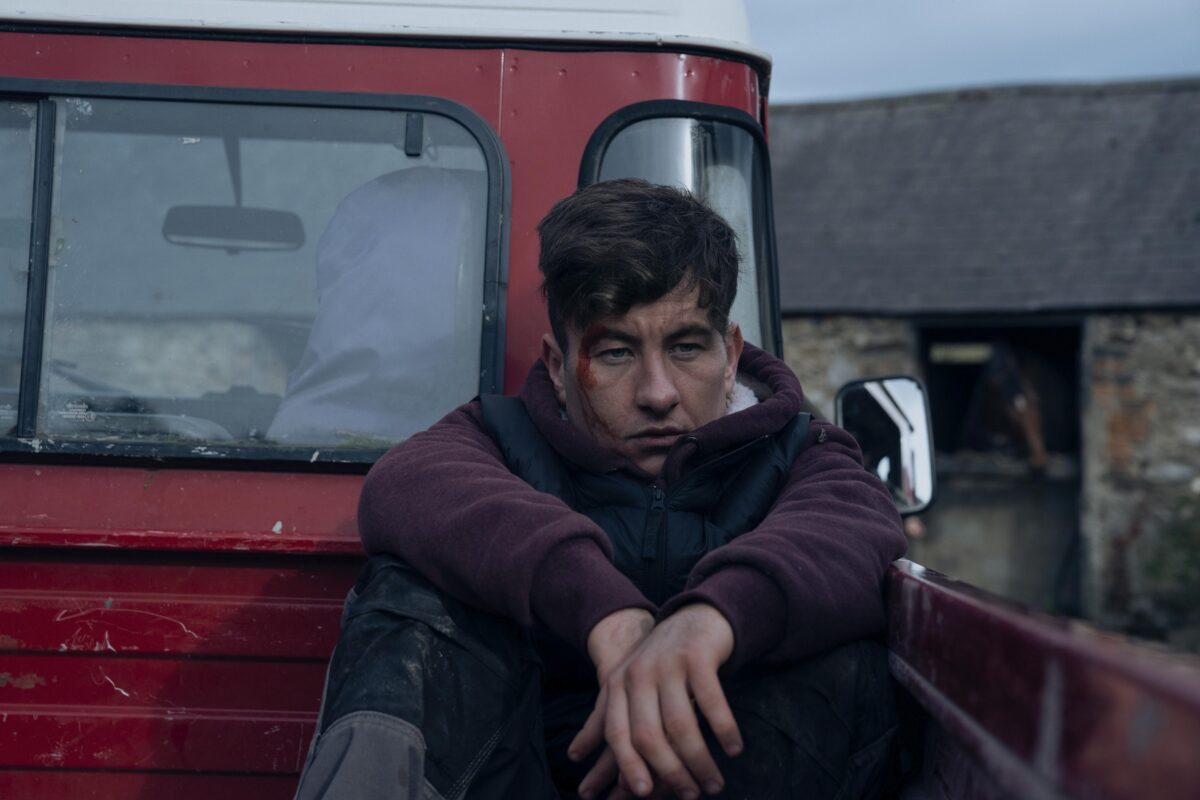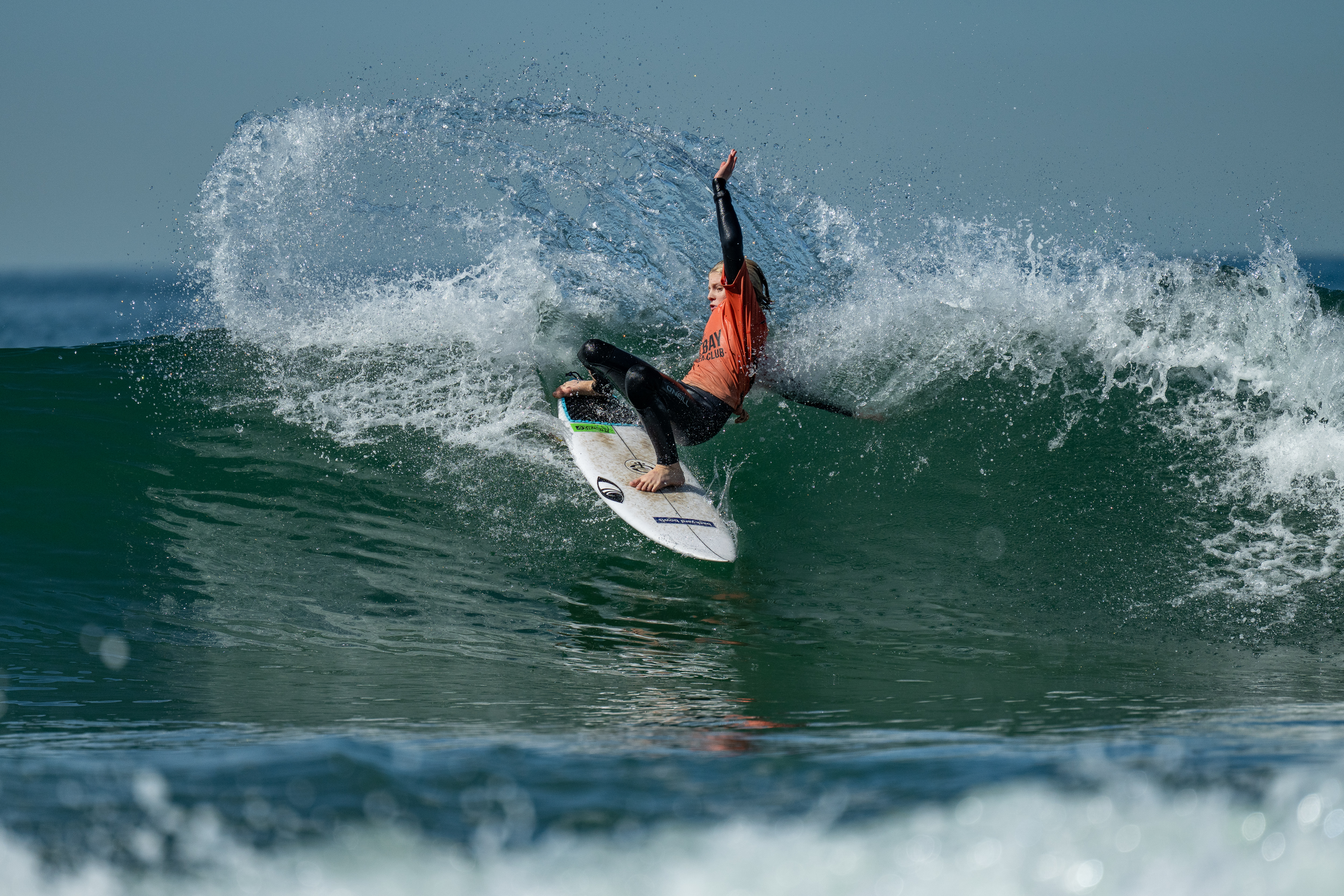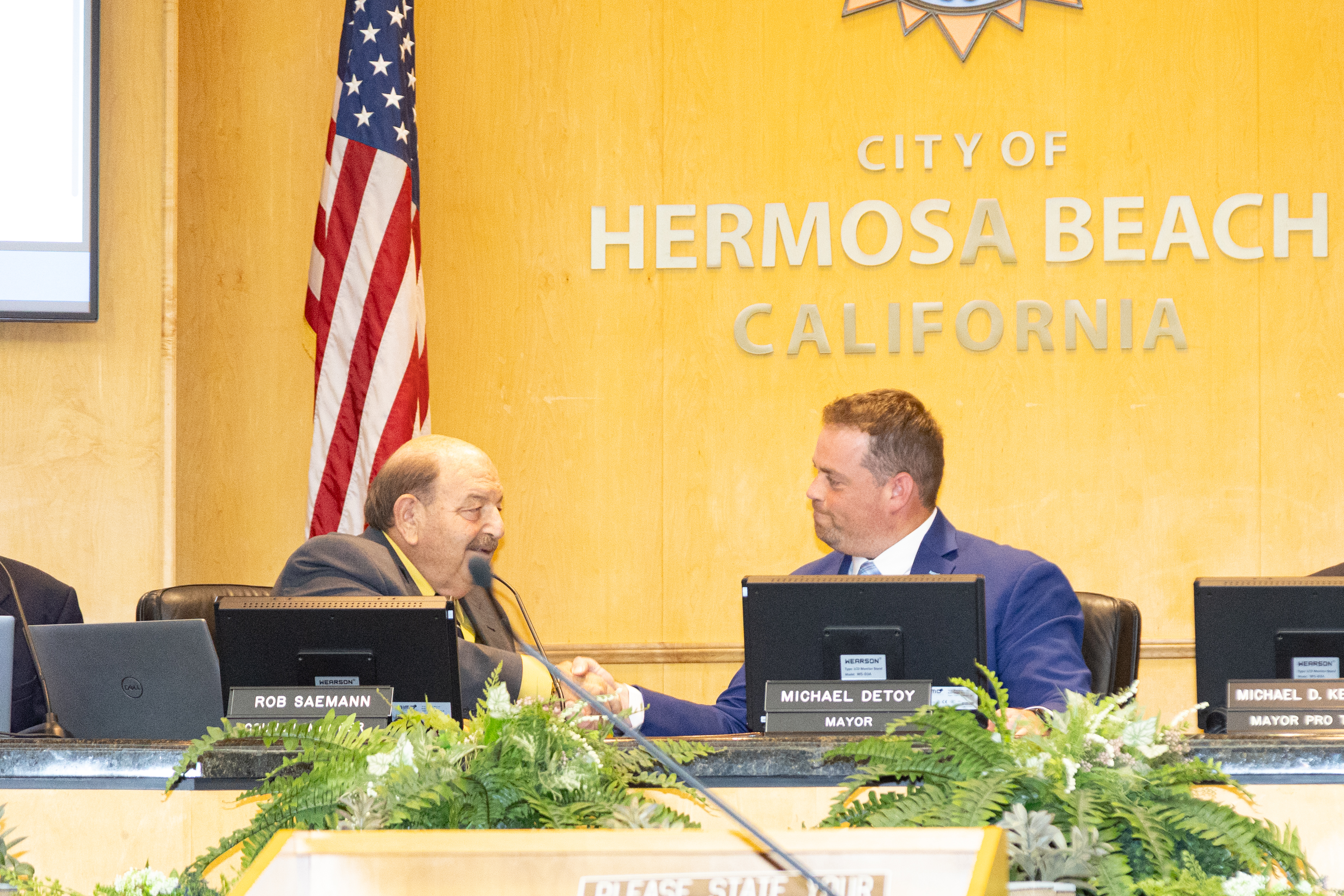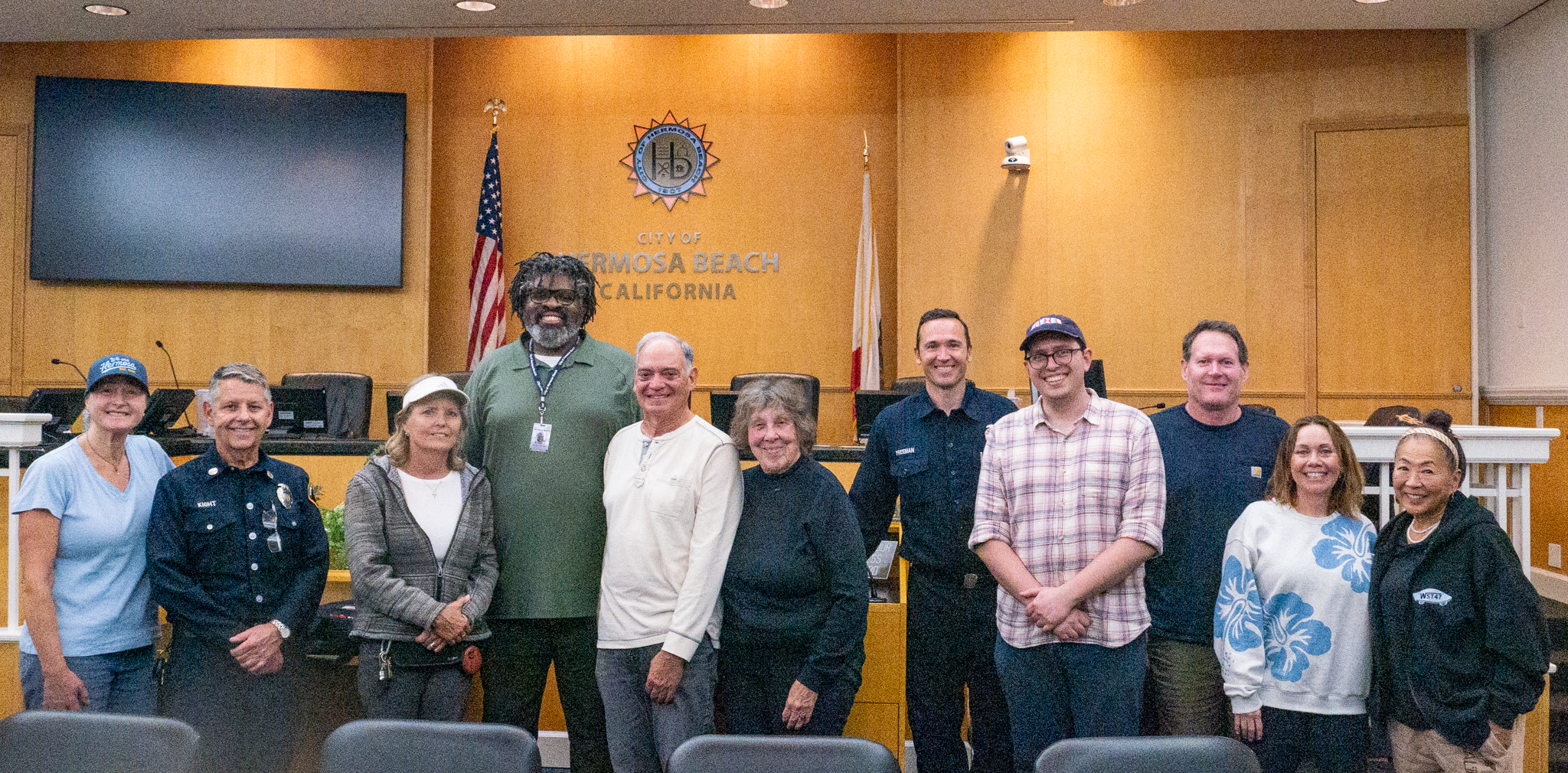The insular lives of sheep farmers, as written and directed by Chris Andrews, is only the beginning of this intense drama. “Bring Them Down” is much more than that, using the barren but bucolic setting of an isolated hillside in Ireland as the setting for a family feud. Allegorically, this familial tragedy is positively Shakespearean in nature, a theme that is encapsulated in the famous quote from “Hamlet, “Whether ‘tis nobler in the mind to suffer the slings and arrows of outrageous fortune, or to take arms against a sea of troubles, and by opposing end them.” No one in this film is going to ignore those slings and arrows and the sea of troubles they oppose will not end them, despite the violence and yield no quarter attitudes of the antagonistic families.

“Bring Them Down”paints a portrait of the small and isolating lives of sheep farmers with Gary, his son Jack and wife Caroline pitted against their neighbors, Michael and his father Ray. Sheep farming in this part of the country has been carried down from father to son for 500 years and Ray has no intention of changing anything. In an elegant, yet violent, opening, Michael’s mother, in a car with her son and his fiancée Caroline, is explaining that she must leave and can no longer live with Ray. He is violent and focused only on his farm; her needs are unmet and she fears for her life. Michael, angry, begins speeding, driving recklessly, scaring both women until the inevitable occurs. Rounding a corner in the woods, out of control, his mother is killed and Caroline is maimed. He is unscathed, a wound he must bear forever. Twenty years later, Michael, who had disappeared after the accident, is called back by his father, now incapacitated and in need of his help because, of course, there is no one left.
Gary, their neighbor, now married to Caroline, runs his farm with their son, the not too bright Jack. Gary, who understands that sheep farming will no longer sustain them, has entered into an agreement with a developer to build holiday homes on his adjacent property, something that infuriates Ray. Caroline has been marginalized, as wives have traditionally been in this setting. Like the bitter memory of Michael’s mother before her, she is looking for expanded horizons. Blindly, husband and son blame the reappearance of Michael for her dissatisfaction.
An isolated act of hostility, the theft of two of Michael’s rams by Gary, begins a war of attrition that escalates to epic proportions. Lying and thieving lead to bigger and bigger acts of aggression accelerating to Biblical acts of violence and murder. In this take-no-prisoners scenario there are no winners and no lessons learned, much like a microcosm of Ireland herself in the battle between North and South, Protestants and Catholics. Truly a tale of toxic masculinity where the gladiators battle to the death because life in the hills is a zero-sum game.
Seemingly everyone has skin in this fight. The petty act of thievery, the locking of a gate, the easy money from sheep rustling, the seething undercurrent of hate exacerbated by an inability to address emotions openly all contribute to a tragedy of enormous scale that rests on petty grievances. The two women, one dead and one leaving, around whom the farmers circle, highlight the loss of humanity in the traditional roles that everyone plays and the literalism that heightens the stakes and outcomes. And Michael and Jack, products of unfeeling, unyielding, unpleasant fathers have inherited those traits, ignoring the lessons and hopes of their mothers. In many ways, Caroline is a reminder of a lost past for Michael and a lost path for Jack.That she would feel a need to leave was as inevitable as that of Michael’s long dead mother.

Andrews, in his feature film directing and writing debut, has taken his experience as a camera operator and translated it into an understanding of how the setting marks the action. His understanding of the Irish landscape and the mentality of the historically warring factions worked well in translating them into the smaller scale that ramps up the undercurrent of hopelessness. Cinematographer Nick Cooke has captured the Ireland Andrews wanted to present both cinematically and metaphorically.
The cast is pitch perfect, believable even when the circumstances don’t seem to be. Veteran actress Susan Lynch as Peggy, Michael’s mother, is seen only briefly at the beginning and yet is critical to the set up of the movie and establishing the long hardened views of the men in this society, a society that has no place for women. She may be quickly gone but her death is a haunting reminder of everything that comes after.
Paul Ready is Gary and exhibits a depth to his animosity that, while not at all sympathetic, seems understandable, at least as far as he is concerned. Driven by a desire to have more than what farming will bring, he is also insecure about his place in society, something that is heightened by the jealousy he feels toward Caroline who is, all too obviously to him, far too good for her circumstances. Michael’s return has only increased his suspicions.
Caroline, as played by Nora-Jane Noone, is a saint-like presence. She is the calm water in the middle of a typhoon. Never wavering in her love for family and all that it should represent, she has tried for more than 20 years to work with her husband, realizing finally that neither her husband nor her confused son are capable of lowering the barrier they have set up to keep her out.
Christopher Abbott plays Michael as the Prodigal Son returning to atone to a father who is neither loving nor forgiving. Abbott effectively portrays a man confused by expectations and at a loss to fulfill them. He takes his father, often speaking in Biblical terms of revenge, literally. The sympathy that he engenders is offset by his heinous deeds, both past and present.

Colm Meaney, well known for the range of roles he has played, is totally convincing as a brutal, narcissistic man who sees nothing but the immediacy of payback. That his wife disappeared was, apparently, never a concern. He could be the personification of “the banality of evil” except there’s nothing banal about his toxic character.
Barry Keoghan, who rose to fame in “The Banshees of Inisherim” as the Oscar-nominated dimwit, isn’t the star of this film but all focus is on him in all his scenes partly because he gets everything wrong and partly because his wide-eyed look of innocence is offset by his moronically savage acts that are always propelled by others. He may be the only male character in this story that commits acts of violence followed by true regret, a regret that registers as hollow because he didn’t have the brain power to see consequences.
“Bring Them Down” can be difficult to watch at times because it is psychologically and physically violent, but it tells a story of consequence and consequences in a setting whose beauty and squalor are a perfect metaphor for the film
In Celtic and English with subtitles.
Opening February February 6 at the Alamo Drafthouse Downtown, AMC Santa Monica 7, AMC Del Amo 18 and AMC Rolling Hills 20








